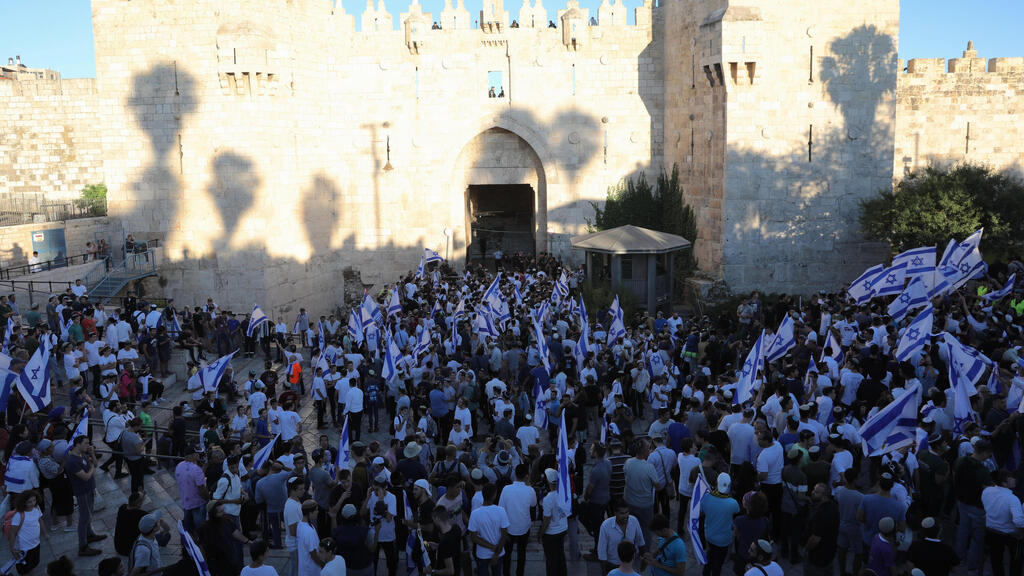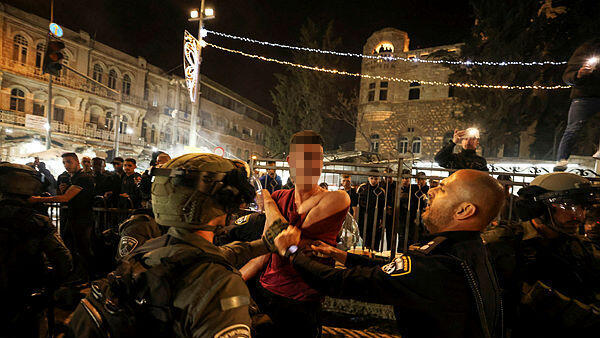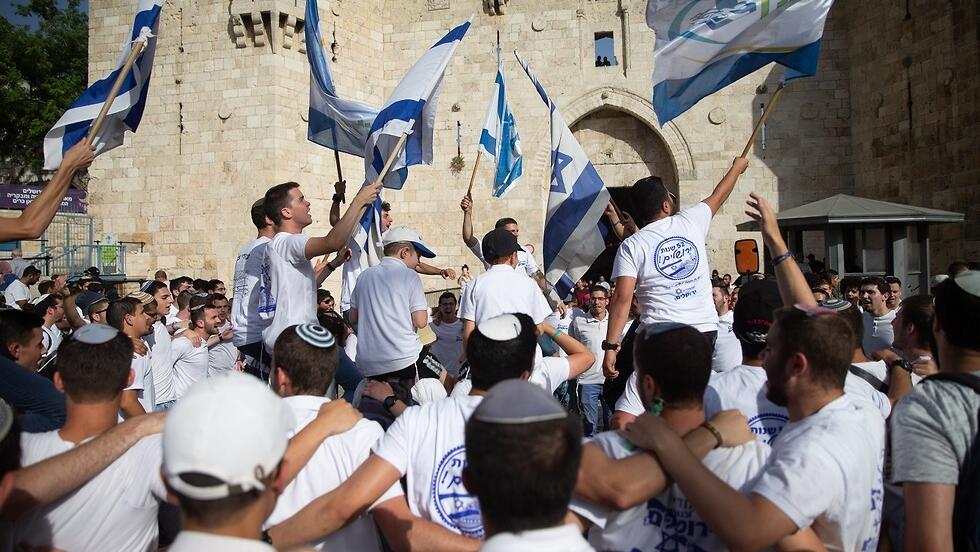Getting your Trinity Audio player ready...
Israeli officials rejected a request by the U.S. Ambassador Thomas Nides, to amend the route of the controversial Flag March so that it avoids the Muslim Quarter in the Old City of Jerusalem.
The March will take place on Sunday, on the occasion of Jerusalem Day.
The Ambassador said the march as it was approved, could cause further friction and asked officials in Jerusalem to reconsider their decision.
3 View gallery


Right-wing flag march enters Jerusalem Muslim quarter through Old City Damascus Gate in 2021
(Photo: EPA)
The annual event, marking the 'reunification' of east and west Jerusalem after the 1967 Six Day War has become a demonstration of Israeli sovereignty over the city by the right-wing and religious population, and includes organized groups of school children from religious schools.
Public Security Minister Omer Barlev said last week that the police will approve the march based on recommendations from security agencies.
Nides related the American request in meetings with Barlev and with Foreign Minister Yair Lapid
"I understand your concerns," Barlev told Nides, "We are doing all we can to prevent friction and provocations. This march is a 30 year long tradition," he said. "Jerusalem is Israel's capital," Barlev said and even reminded the ambassador that his father who was then deputy chief of staff, participated Israel's conquest of the Old City.
Officials in Jerusalem rejected claims by Palestinians that the march will pass though Muslim holy sites and the Al Aqsa Mosque compound, saying that those claims were meant to incite violence.
Egypt the UN and some European countries also asked Israel to reconsider the decision to allow the march to enter the Old City through the Damascus Gate.
The U.S. embassy in Jerusalem said it was forbidding its staff and their families from visiting the Old City on Sunday and in fact ordered them to refrain from entering the ancient city's walls from Thursday through Monday.
The embassy also published a warning to all Americans in the area to be especially vigilant.
3 View gallery


Police clash with Palestinians near the Damascus Gate to the Old city of Jerusalem during Ramadan, last April
(Photo: Reuters)
Israel's security agencies and the IDF recommended the route remain unchanged from past years in order not to cause the appearance of weakness after Hamas threatened violence in response to it.
In discussions, the officials said that if Hamas initiates violence in the wake of the march like it did last year, Israel's response should be significant. Prime Minister Naftali Bennett was also decisive in the discussions and said the route must remain unchanged.
On Wednesday, Hezbollah leader Hassan Nasrallah said participants in the march intend on destroying the mosque on top of the Temple Mount compound.
"The Palestinian resistance said the march will not go unanswered," leader of the Iran-backed terror group said.


